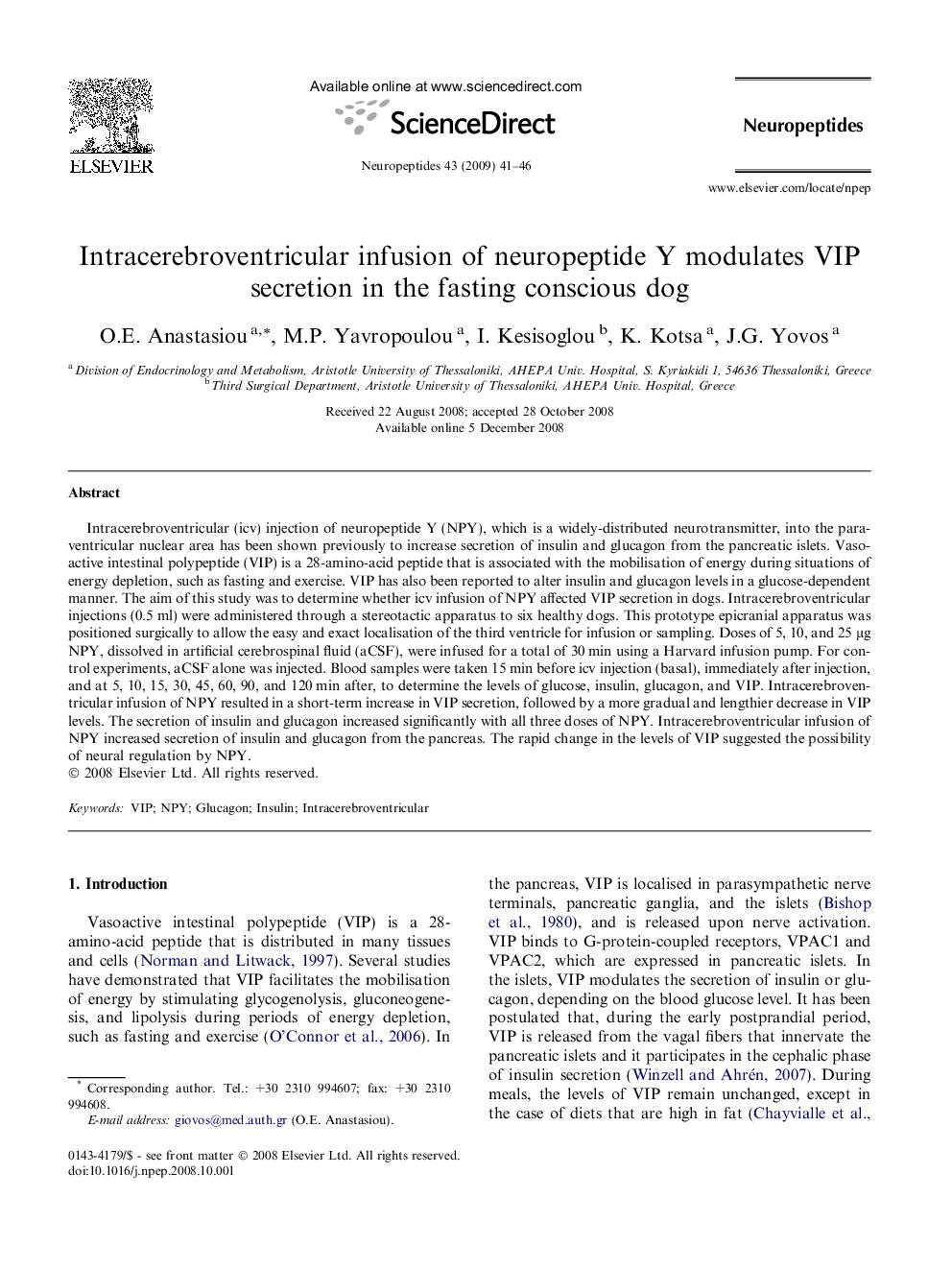| Article ID | Journal | Published Year | Pages | File Type |
|---|---|---|---|---|
| 2808595 | Neuropeptides | 2009 | 6 Pages |
Abstract
Intracerebroventricular (icv) injection of neuropeptide Y (NPY), which is a widely-distributed neurotransmitter, into the paraventricular nuclear area has been shown previously to increase secretion of insulin and glucagon from the pancreatic islets. Vasoactive intestinal polypeptide (VIP) is a 28-amino-acid peptide that is associated with the mobilisation of energy during situations of energy depletion, such as fasting and exercise. VIP has also been reported to alter insulin and glucagon levels in a glucose-dependent manner. The aim of this study was to determine whether icv infusion of NPY affected VIP secretion in dogs. Intracerebroventricular injections (0.5 ml) were administered through a stereotactic apparatus to six healthy dogs. This prototype epicranial apparatus was positioned surgically to allow the easy and exact localisation of the third ventricle for infusion or sampling. Doses of 5, 10, and 25 μg NPY, dissolved in artificial cerebrospinal fluid (aCSF), were infused for a total of 30 min using a Harvard infusion pump. For control experiments, aCSF alone was injected. Blood samples were taken 15 min before icv injection (basal), immediately after injection, and at 5, 10, 15, 30, 45, 60, 90, and 120 min after, to determine the levels of glucose, insulin, glucagon, and VIP. Intracerebroventricular infusion of NPY resulted in a short-term increase in VIP secretion, followed by a more gradual and lengthier decrease in VIP levels. The secretion of insulin and glucagon increased significantly with all three doses of NPY. Intracerebroventricular infusion of NPY increased secretion of insulin and glucagon from the pancreas. The rapid change in the levels of VIP suggested the possibility of neural regulation by NPY.
Related Topics
Life Sciences
Biochemistry, Genetics and Molecular Biology
Endocrinology
Authors
O.E. Anastasiou, M.P. Yavropoulou, I. Kesisoglou, K. Kotsa, J.G. Yovos,
